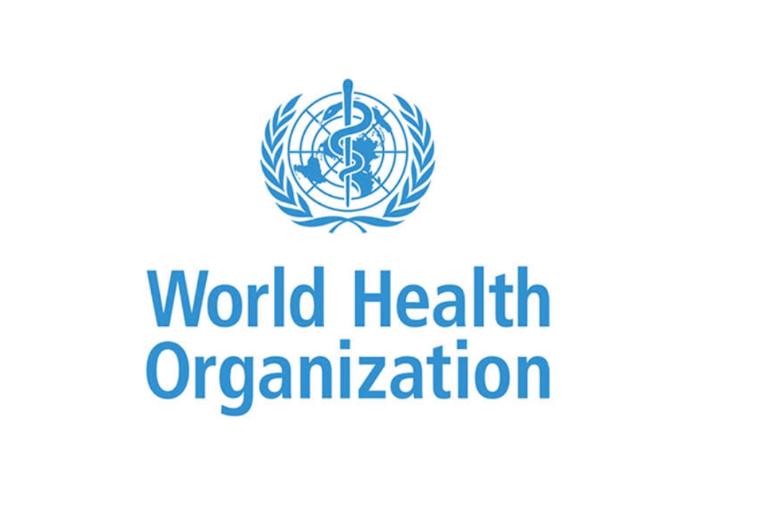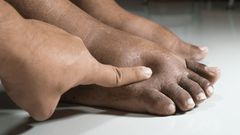The World Health Organization (WHO) has released a definitive statement aimed at clarifying a heated debate that has swept across both traditional and social media: Does taking paracetamol (commonly known as acetaminophen or Tylenol) during pregnancy increase the risk of autism in children? This question gained even more traction following recent statements allegedly made by U.S. President Donald Trump in a publicized video, which claimed that expectant mothers who use paracetamol are at a significantly higher risk of giving birth to children with autism.
According to a widely circulated report published by an Australian media outlet, the video also featured the U.S. president referencing possible new guidance from the Food and Drug Administration (FDA) regarding paracetamol’s use in pregnancy. Within hours, the issue went viral, sparking widespread concern among mothers and healthcare professionals, especially in countries like Nigeria where paracetamol remains the most accessible and frequently recommended pain reliever.
In response, WHO released a statement on Wednesday to set the record straight. “Extensive research has been undertaken over the past decade, including large-scale studies, looking into links between acetaminophen use during pregnancy and autism. At this time, no consistent association has been established,” the statement emphasized.
The organization also noted that while studies have explored the potential relationship between maternal paracetamol use and neurodevelopmental outcomes in children, no solid scientific basis has confirmed a direct link to autism spectrum disorder (ASD). Instead, WHO continues to advocate for responsible medication use in pregnancy, recommending that women seek professional medical guidance before taking any drugs, especially during the critical first trimester.
Why the Conversation Matters in Nigeria and West Africa
In Nigeria and throughout West Africa, paracetamol is used extensively due to its low cost and perceived safety profile. For many families, it is the go-to remedy for fever, pain, and common ailments. However, the recent controversy has left many mothers anxious. Mrs. Oluchi Nwosu, a pharmacist in Lagos, explained the local perspective, stating, “Because our healthcare infrastructure is often stretched, most pregnant women rely on easily available and affordable medications. When international debates arise about their safety, it creates real fear and confusion.”
A 2022 Nigerian Health and Demographic Survey highlighted that over 70% of pregnant women reported using over-the-counter medication during pregnancy, with paracetamol topping the list. Healthcare practitioners continually urge the public to avoid self-medication and consult professionals before using any drugs while pregnant.
Given this context, WHO’s clarification provides significant reassurance, but also serves as a reminder of the broader importance of evidence-based health information in vulnerable communities. As Dr. Ibrahim Sani, an Abuja-based public health expert, noted, “Misinformation on medication use can be as dangerous as the illnesses we are trying to treat. It’s critical that people trust science and seek guidance from credible sources.”
Global Prevalence, Local Reality: Autism and Health Awareness
Autism spectrum disorder impacts millions globally, and its visibility has grown in Nigeria and Ghana in recent years, propelled by greater advocacy and awareness efforts. WHO estimates that approximately 62 million people worldwide—about one in every 127—are affected by autism spectrum disorder, a developmental condition that influences social skills, communication, and behavior.
Locally, Nigerian NGOs and autism support organizations have worked tirelessly to reduce stigma and promote early diagnosis. Yet, as WHO points out, the root causes of autism remain poorly understood. The agency reiterates that research implicates multiple genetic and environmental factors, and no single cause—including routine medications like paracetamol—has been singled out as definitive.
Incidentally, these global health conversations intersect with policymaking at the highest levels. Autism, along with other neurodevelopmental conditions, was scheduled to be highlighted at the fourth United Nations High-Level Meeting on Non-Communicable Diseases (NCDs) and mental health, held on 25 September, reflecting an ongoing commitment to ensuring inclusive and supportive policy interventions for people living with autism and related disorders.
WHO further emphasized its ongoing collaboration with autistic-led groups and organizations supporting people with lived experiences. The goal, as articulated by WHO officials, is to foster inclusion, offer evidence-based care, and reduce the stigma that so often hinders progress for neurodiverse individuals.
Setting the Record Straight on Vaccines and Childhood Autism
Alongside the paracetamol-autism debate, WHO took the opportunity to address persistent myths about childhood vaccines. Misinformation claiming that routine immunizations, particularly those containing ingredients like thiomersal or aluminium, can cause autism, continues to circulate in many Nigerian and West African communities, sometimes fueling vaccine hesitancy.
WHO reaffirmed, “Since 1999, independent experts advising WHO have repeatedly confirmed that vaccines, including those with thiomersal or aluminium, do not cause autism or other developmental disorders.” Over the past five decades, the widespread use of national childhood immunisation schedules has reportedly saved at least 154 million lives across the globe.
In Nigeria, this is a crucial message, where periodic measles or polio outbreaks remind the public of the vital importance of vaccines. Delays or disruptions in immunization schedules, WHO warns, sharply increase the risk of infectious diseases not only for the child in question but for entire communities. This is especially true for vulnerable groups: infants too young to receive certain vaccines and individuals with weakened immune systems are most at risk.
“Immunisation not only protects the child but strengthens the resilience of the entire population,” explained Dr. Gbenga Adebayo, a paediatrician at University College Hospital, Ibadan. He continued, “Rumors and fear have set back important gains in recent years. Our duty as health professionals is to reassure parents and provide them with reliable facts.”
The Ongoing Role of Trusted Information
With WHO’s authoritative statements now public, the global health community is hopeful that medical myths—whether about paracetamol use in pregnancy or vaccine safety—can be dispelled, making way for science-driven decision-making among families, healthcare workers, and policy makers.
As Nigeria, Ghana, and other African countries continue striving to expand access to healthcare, promote maternal well-being, and support families navigating neurodevelopmental conditions like autism, the need for clarity and trustworthy guidance has never been greater.
WHAT’S YOUR VIEW? Have you encountered concerns about medicines or vaccines in your community? What steps can be taken to improve health education and support for families in Nigeria and West Africa?
Drop a comment below and join the conversation. For more updates on health and wellness, follow us on your favourite social platforms!
Have a health or wellness story to share, or want your experience featured? Your voice matters in creating awareness and busting health myths in our communities. Email us at story@nowahalazone.com to send your stories, tips, or opinions—or to discuss how you can get your story published.
For support and enquiries, contact support@nowahalazone.com.
Let’s keep the conversation going—follow us on Facebook, X (Twitter), and Instagram for more health news and real-life stories.










